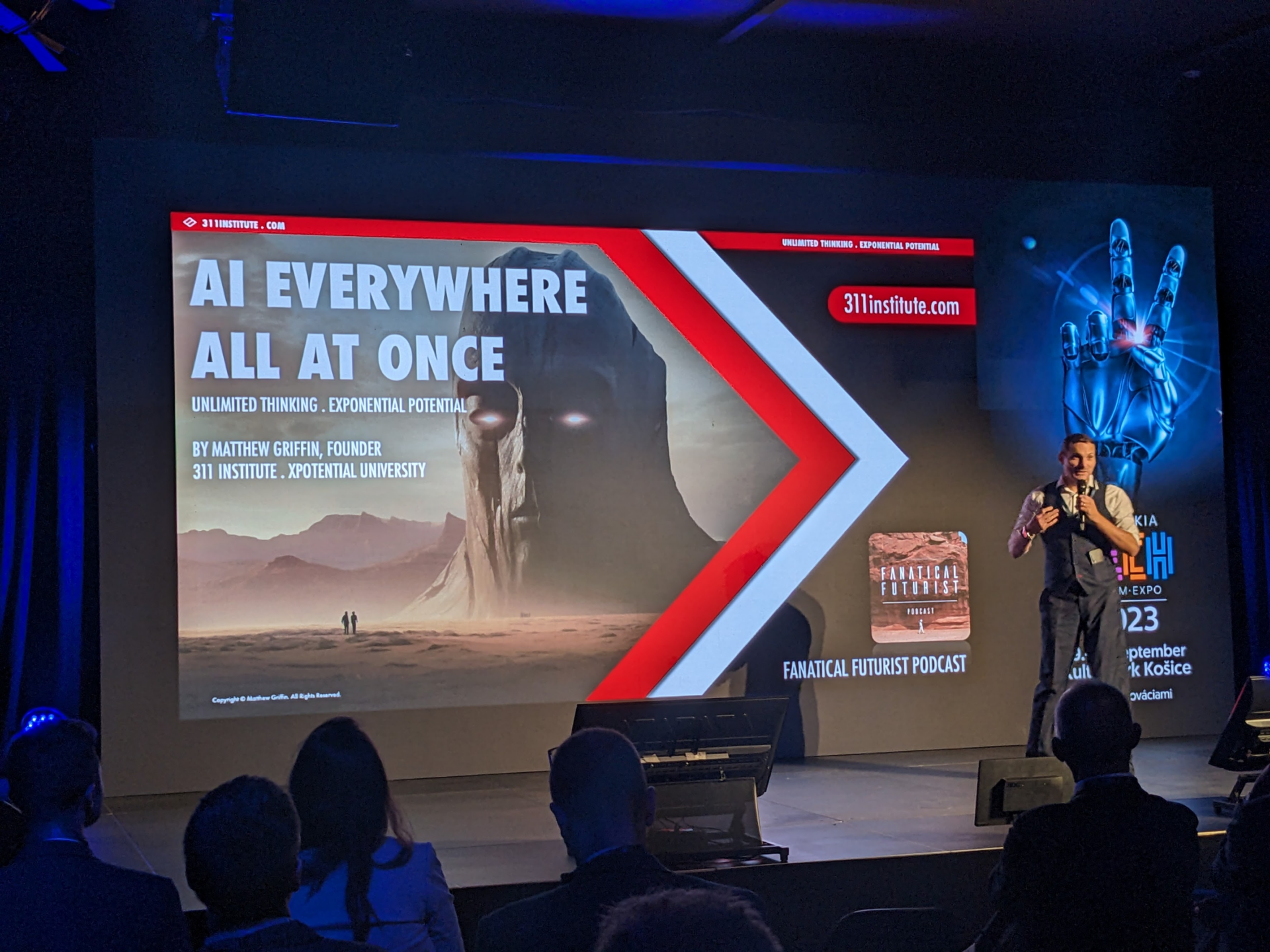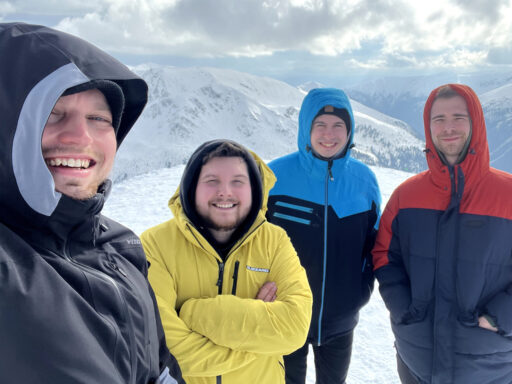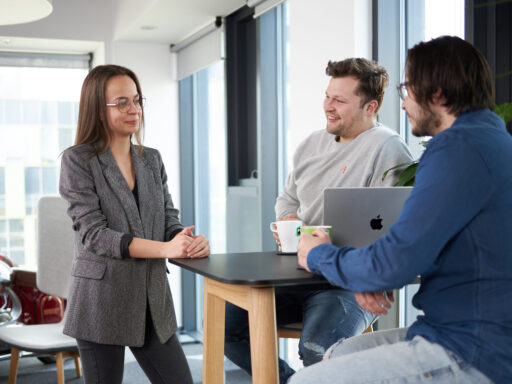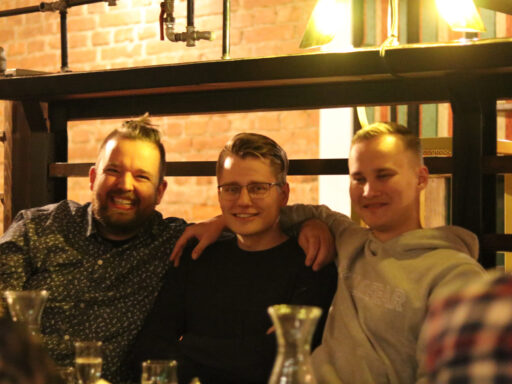At the end of September, the international SlovakiaTech conference was held in Kulturpark for the fifth time. This time, the main topics of lectures were AI, security and green technologies. Since we’ve been trying to use AI to optimize our work at Crossuite for a long time, I chose several presentations on this topic from the program. Here, in my opinion, are the 5 most important observations that I take home from the conference:
1.
AI is still just a tool. It isn’t meant to be a substitute for humans, just a way to increase work efficiency. Therefore, it should be used as your helper. Interesting fact: In April 2023, a study was carried out at MIT and Stanford which tracked how much AI helps employees with different levels of knowledge. It turned out that it doesn’t help the most qualified at all. “Low-skilled” employees, on the other hand, showed a 35 percent increase in productivity with the help of AI.
2.
Whether we like it or not, AI has forever changed teaching and the way assignments are completed and homework written. Just as a calculator or Google has changed the way we work, with the advent of AI, education itself and the way they assign work to be done at home, must change. However, this topic has been discussed for a long time – as soon as in 2020, a series of trainings for teachers was held under the guidance of teacher Zuzana Tkáčová, who also spoke during the discussion at SlovakiaTech. At the same time, how AI can be used, for example, by personal assistants for children with special needs, was also discussed. I’m very curious where this will lead and how important documents will be written in the future, such as master’s theses, which ultimately decide on obtaining a degree.
3.
People are aware that AI is also changing the perception of the concept of intellectual property. The European Union has even developed the first regulations, the so-called Plus AI Act, which define what AI is and when its behavior is unacceptable. By the end of the year, the governments of the individual countries are to decide in what form they’ll incorporate this act into their laws. I think that this issue will also affect us, programmers. Although cases where artists fought with AI for their rights are more publicized, court hearings on the legality of AI created codes have already appeared.
4.
Slovakia is going to use AI in spatial planning! This was confirmed by 3 prominent figures of urbanism and innovation, Mišo Hladký from Creative Industry Košice, Rado Mizera from Solved.fi and Peťo Breyl from the Regional Innovation Center. I’m looking forward to when it really gets moving.
5.
AI can have a negative impact on the environment because it needs huge data centers with high water and energy consumption to process information. Some countries where these resources are scarce, are even fighting against their construction. According to statistics, an average data center uses as much water as 3 ordinary hospitals. For example, a Google data center planned in Chile, where there are often periods of several months without rain, requires 169 liters of water per second to function. Therefore, if AI is to be a global standard, these data centers must work on their efficiency.
Bonus:
At the conference, a practical demonstration was presented in which AI was to select random people. It turned out that it practically still prefers men when choosing. And although the programmers tried to fix it, AI still found some hidden gender connection in the data. What I learned from this is that AI can find in information even what a human would probably never find. Whether this is an advantage or a disadvantage I cannot yet assess.
Lectures were mainly a great motivator for me. They forced me to think about AI beyond what I currently use it for, whether at home or at work. It’s also been confirmed to me that artificial intelligence won’t help me much when it comes to programming. I rather feel like things take me longer with it… But on the other hand, I can use AI in areas where I may not feel quite so sure. Anyway, I wonder where this new feature will take us. I believe that it’ll lead to a better future.







